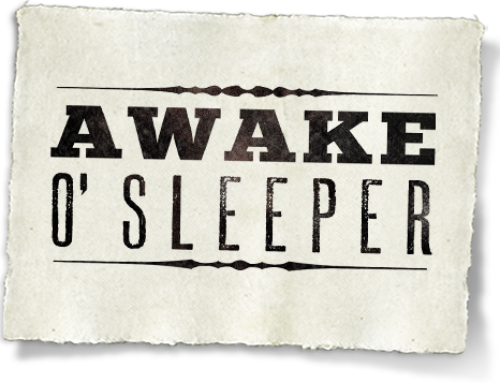COME, CHILDREN, LEARN TO FEAR THE LORD
Based on Psalm 34 provided below
Isaac Watts
Words: Isaac Watts, The Psalms of David, 1719.
Music: Rochester (Holdroyd), Israel Holdroyd, 1722
(MIDI, score).
Come, children, learn to fear the Lord And that your days be long, Let not a false or spiteful word Be found upon your tongue.
Depart from mischief, practice love, Pursue the works of peace; So shall the Lord your ways approve, And set your souls at ease.
His eyes awake to guard the just, His ears attend their cry; When broken spirits dwell in dust, The God of grace is nigh.
What though the sorrows here they taste Are sharp and tedious too, The Lord, who saves them all at last, Is their supporter now.
Evil shall smite the wicked dead; But God secures His own, Prevents the mischief when they slide, Or heals the broken bone.
When desolation, like a flood, O’er the proud sinner rolls, Saints find a refuge in their God, For He redeemed their souls.
Short biography of Isaac Watts:
Born: July 17, 1674, Southampton, England.
Died: November 25, 1748, Stoke Newington, England.
Buried: Bunhill Fields Cemetery, London, England. John Bunyan, Joseph Hart John Rippon, & William Shrubsole lie nearby.
Watts’ father was Nonconformist imprisoned twice for his religious views. Isaac learned Greek, Latin, and Hebrew under Mr. Pinhorn, Rector of All Saints, and headmaster of the Grammar School in Southampton. Isaac’s taste for verse showed itself in early childhood, and his promise caused a local doctor and other friends to offer him a university education, assuming he would be ordained in the Church of England. However, Isaac declined and instead entered a Nonconformist Academy at Stoke Newington in 1690, under the care of Thomas Rowe, pastor of the Independent congregation at Girdlers’ Hall; Isaac joined this congregation in 1693.
Watts left the Academy at age 20 and spent two years at home; it was during this period that he wrote the bulk of his Hymns and Spiritual Songs. They were sung from manuscripts in the Southampton Chapel, and published 1707-1709.
The next six years of his life were again spent at Stoke Newington, working as tutor to the son of eminent Puritan John Hartopp. The intense study of these years is reflected in the theological and philosophical material he subsequently published.
Watts preached his first sermon at age 24. In the next three years, he preached frequently, and in 1702 was ordained as pastor of the Independent congregation in Mark Lane. At that time he moved into the house of a Mr. Hollis in the Minories. His health began to fail the next year, and Samuel Price was appointed as his assistant in the ministry. In 1712, a fever shattered his constitution, and Price became co-pastor of the congregation, which had moved to a new chapel in Bury Street. It was at this time that Isaac became the guest of Sir Thomas Abney. He lived with Abney (and later Abney’s widow) the rest of his life, mainly at Theobalds in Hertfordshire, then for 13 years at Stoke Newington.
In 1728, the University of Edinburgh awarded Watts a Doctor of Divinity degree.
PSALM 34
A Psalm of David, when he changed his behaviour before Abimelech; who drove him away, and he departed.
1 I will bless the LORD at all times: his praise shall continually be in my mouth.
2 My soul shall make her boast in the LORD: the humble shall hear thereof, and be glad.
3 O magnify the LORD with me, and let us exalt his name together.
4 I sought the LORD, and he heard me, and delivered me from all my fears.
5 They looked unto him, and were lightened: and their faces were not ashamed.
6 This poor man cried, and the LORD heard him, and saved him out of all his troubles.
7 The angel of the LORD encampeth round about them that fear him, and delivereth them.
8 O taste and see that the LORD is good: blessed is the man that trusteth in him.
9 O fear the LORD, ye his saints: for there is no want to them that fear him.
10 The young lions do lack, and suffer hunger: but they that seek the LORD shall not want any good thing.
11 Come, ye children, hearken unto me: I will teach you the fear of the LORD.
12 What man is he that desireth life, and loveth many days, that he may see good?
13 Keep thy tongue from evil, and thy lips from speaking guile.
14 Depart from evil, and do good; seek peace, and pursue it.
15 The eyes of the LORD are upon the righteous, and his ears are open unto their cry.
16 The face of the LORD is against them that do evil, to cut off the remembrance of them from the earth.
17 The righteous cry, and the LORD heareth, and delivereth them out of all their troubles.
18 The LORD is nigh unto them that are of a broken heart; and saveth such as be of a contrite spirit.
19 Many are the afflictions of the righteous: but the LORD delivereth him out of them all.
20 He keepeth all his bones: not one of them is broken.
21 Evil shall slay the wicked: and they that hate the righteous shall be desolate.
22 The LORD redeemeth the soul of his servants: and none of them that trust in him shall be desolate.






Leave a Reply, please --- thank you.